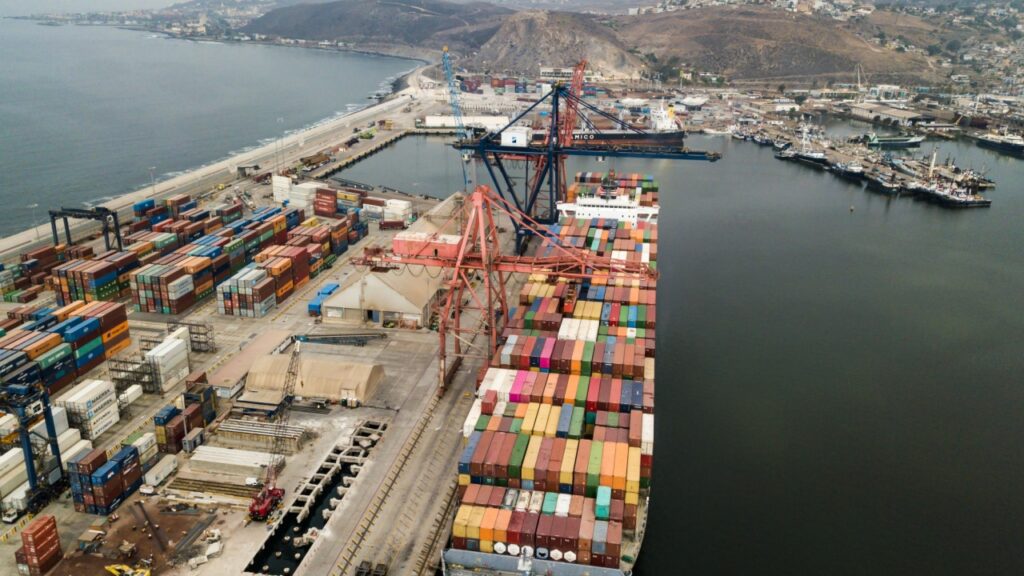The United States must do more than prop up Argentina’s flagging peso. It must encourage foreign direct investment.
Argentina is facing yet another financial crisis. Washington has announced major initiatives aimed at helping to shore up the peso. The question is whether the radical reforms undertaken by President Javier Milei to overhaul the Argentinian economy over the past two years, since his election, will continue to take hold and endure.
So far, his aggressive reforms have resulted in cutbacks in government debt, spending, and programs, leading to a budget surplus and sharp declines in inflation. Emerging from a 2024 recession, economic growth is now projected to increase at a 5.5 percent rate in 2025. Still, since President Milei’s election in 2023, the unemployment rate has increased. Nonetheless, free market advocates say that Milei’s initiatives should eventually turn the country around. Adhering to these reforms can put Argentina on the path to long-term, stable economic growth, a goal the country has not achieved in decades.
Washington and Buenos Aires have common strategic interests in the Western Hemisphere as democracies. The two countries currently enjoy unusually positive relations, thanks to the personal relationship between Presidents Milei and Donald Trump.
Recent election results in the Buenos Aires province create questions over whether Milei’s bold programs will continue to receive support at the ballot box. The unemployment rate declined only slightly in the last quarter. Still, voters might well be nostalgic for the past. Argentinians learned over decades to live both with Peronism’s rampant inflation and its generous government subsidies and programs. Under Peronism, Argentinians became accustomed not only to constantly rising prices but also to guarantees of job security, free healthcare, subsidized pensions, tuition-free universities, and an array of generous subsidies for transportation, utilities, housing, bread, milk, and cooking oil.
These programs became deeply embedded in the Argentinian social fabric over the decades. The cost of publicly financing these generous services for Argentina, however, has led to nine sovereign debt defaults, chronic severe inflation, persistent deficits, and weak, inconsistent economic growth. Argentina is the IMF’s biggest debtor. Over the last 70 years, the International Monetary Fund (IMF) has bailed out Buenos Aires 23 times.
The Trump administration is certainly trying to help President Milei. Treasury Secretary Bessent has said that Washington will provide a raft of support for the peso, which plunged immediately after Milei’s weak showing in the Buenos Aires province in the September 7 elections. The US pledges to buy dollar-denominated Argentinian debt. It also says that it will support the Argentinian central bank by loaning dollars to purchase pesos. Milei’s policies, which aimed to strengthen the peso, led to a surge in imports but harmed exports and hindered the accumulation of currency reserves necessary to continue paying down international debt.
Washington’s initiatives will hopefully calm the currency waters, leading to better voting results for Milei in the nationwide legislative elections on October 26. Nonetheless, fundamental problems remain. Managing the peso is not the only issue. The country must attract more foreign direct investment to help fire the domestic economy. To do that, specific, continuous reforms are urgently required to attract US capital and businesses to invest more in Argentina.
For example, Washington should encourage the Milei administration to reconsider its Large Investment Incentive Regime (known by its Spanish initials as RIGI). For foreign direct investors to obtain their tax and other benefits, a minimum investment of at least $200 million is required. Additionally, RIGI is available only for investments in specific, well-established industries, such as mining, oil and gas, tourism, or infrastructure. Buenos Aires should consider gradually expanding RIGI’s benefits to include smaller investments below the $200 million threshold and to additional sectors of the economy beyond major, existing industry sectors.
The success of micro-investment over the last few decades in the United States provides an attractive model for Buenos Aires to follow. Semiconductors, software, biotech, and AI have all benefited from US small capital investment. US micro-capital has helped create successful enterprises that have spawned vast supply chains, employment, productivity, and economic growth not only for the United States but also for the world as a whole. Amazon, Microsoft, Google, Apple, and many other high-tech startups were all seeded by early-stage, small investments falling far below RIGI’s $200 million mark. Silicon Valley, Seattle, Austin, and the Route 128 corridor in Boston were built in large part on projects incubated by micro-capital.
Gradually expanding RIGI’s reach to early-stage, high-tech startups funded by lower amounts of capital could help promote dynamic new businesses that start at a smaller scale of operation than oil and gas projects, mining, or infrastructure. Argentina has the high-tech, innovative talent needed for creating startups.
Just one example is Argentina’s Globant, a successful IT company founded in 2003 by four self-funding entrepreneurs over a discussion in a Buenos Aires bar. They had far less than $200 million in early-stage startup capital at their disposal. Today, Globant has over 30,000 employees operating around the world, generating billions in revenue. It is listed on NASDAQ. To attract more interest from US micro-capital investors in Argentina, RIGI’s benefits should be extended to amounts below its $200 million threshold.
Washington and Buenos Aires should also collaborate in reducing political risk for foreign investors. Years of expensive arbitrations under the 1991 Bilateral Investment Treaty program have shown that the mechanism is less than an ideal tool for protecting the rights of foreign investors in Argentina.
An interesting alternative, called A3i, has been suggested by three Wall Street mavens. Instead of expensive and lengthy arbitration, A3i would provide conventional political risk insurance, but designed and funded jointly at the outset by the United States and Argentina through a Bermuda insurance company vehicle. Assuming a satisfactory loss history has developed, the program could then eventually be financed by private capital pools that invest in international insurance markets.
Another area requiring further consideration is strategic minerals, particularly lithium, where Argentina ranks among the world’s top five producers. China has dominated that market in Argentina as well as elsewhere. Chinese mines have an important advantage because they operate across the entire production process, from mining raw materials to recycling and sales. Its vertical integration enables it to dominate markets with low pricing, effectively discouraging new entrants.
Even when global lithium pricing dropped by over 80 percent in 2023, China continued its mining investments in Argentina. If lithium is a US national security imperative, Washington will have to be prepared to provide suitable financial support in markets where low pricing conditions are not attractive for investing in new projects, such as Argentina.
Over the last two years, Argentina has made considerable economic progress. Whether that can continue awaits determination at the ballot box. A strong Argentinian economy builds greater regional stability, serving US national security goals in the Western Hemisphere. The United States is the world’s major financial capital market by any measure. For the United States to compete economically against China in Argentina, Latin America generally, and the entire Global South, Washington will have to bring to bear its $57 trillion capital markets as a force multiplier.
Strategically positioned at the tip of Latin America with one of the continent’s three largest economies, Argentina is an important testing ground for Washington to enlist the aid and support of its capital markets. New programs to foster and attract more US investment to Argentina must be developed cooperatively between Buenos Aires and Washington.
About the Authors: Tim Ray and Ramon Marks
General Tim Ray is the Chief Executive Officer of Business Executives for National Security (BENS). He is a retired United States Air Force General who last served as the commander of the Air Force Global Strike Command and Commander of Air Forces Strategic-Air, United States Strategic Command. A BENS delegation recently visited Argentina.
Ramon Marks, a regular contributor to The National Interest, is a retired international lawyer and Vice Chair of Business Executives for National Security (BENS). He participated in the BENS delegation visit to Argentina.
Image: Marco Iacobucci Epp / Shutterstock.com.






